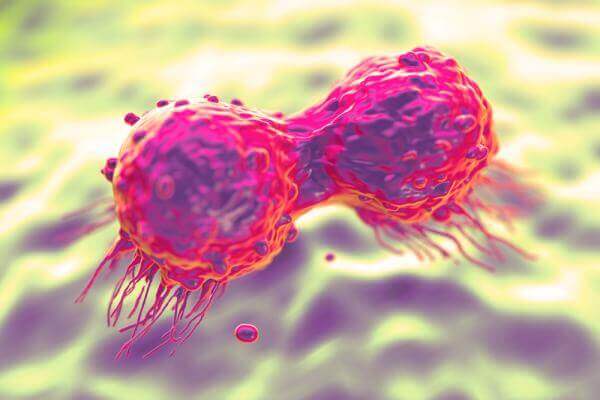
Merrimack Pharmaceuticals, Inc. has announced updated clinical data from a multi-arm Phase 1 study of MM-141, a bispecific antibody targeting IGF-1R and ErbB3. The data were presented in an oral session by Dr. Mansoor Saleh, MD at the 2015 American Association for Cancer Research Annual Meeting in Philadelphia, PA. The trial evaluated the safety and tolerability of MM-141 as a monotherapy and in combination with everolimus or with nab-paclitaxel and gemcitabine in patients with advanced solid tumors.
MM-141 is a novel bispecific tetravalent antibody that binds IGF-1R and ErbB3, which are receptors on the surface of tumor cells that can drive tumor growth and that are commonly co-expressed in solid tumors. Updated results from this Phase 1 trial show an acceptable safety profile for MM-141 as both a monotherapy and in combination with standard-of-care therapies. The most common adverse events in the study, of any grade, were nausea (50%), headache (47.4%), and vomiting (44.7%). Based on a retrospective analysis, patients treated at therapeutic dose levels (?20mg/kg of MM-141 either weekly or every other week) of MM-141 who had detectable levels of serum biomarker, free IGF-1, stayed on study for 3.2 cycles versus 1.8 cycles for patients whose free IGF-1 was not detectable.
“Over 75% of patients with stage IV pancreatic cancer have IGF-1R or ErbB3 present in their tumors and having those markers expressed has been shown to have a negative effect on a patient’s overall survival. The specific biology of this tumor profile presents a potential opportunity for MM-141 to provide benefit to these patients,” said Dr. Mansoor Saleh, MD, Investigator and Professor of Medicine, University of Alabama at Birmingham (UAB) and Senior Scientist at the UAB Comprehensive Cancer Center. “The safety profile we have seen in this Phase 1 makes MM-141 a good candidate for further investigation in combination with other therapies in pancreatic cancer.”
Data from the Phase 1 study were used to inform the design of the upcoming front-line Phase 2 study of MM-141. The planned Phase 2 study will examine MM-141 in combination with nab-paclitaxel and gemcitabine in patients with metastatic pancreatic cancer who have high serum levels of free IGF-1. The study is scheduled to begin in the first half of 2015.
“In the Phase 1 study we found that patients with detectable levels of IGF-1 were able to stay on MM-141 approximately twice as long as patients who were not biomarker positive. These data support and strengthen our hypothesis and biomarker strategy for MM-141 as we head into Phase 2 testing,” said Alexey A. Lugovskoy, Ph.D., a Vice President of Therapeutics and the MM-141 team leader at Merrimack. “In addition, our systems insights allowed us to understand that ErbB3 plays a compensatory role in IGF-1R signaling. As a result we were able to use our antibody technology to engineer a novel bispecific molecule MM-141, which we believe may address resistance mechanisms of cancer cells by blocking signaling through both IGF-1R and ErbB3 receptors.”
The U.S. Food and Drug Administration (FDA) has granted orphan drug designation for MM-141 for the treatment of pancreatic cancer. This orphan drug designation will potentially provide Merrimack with seven-year marketing exclusivity for MM-141 and other benefits if the drug is approved by the FDA.
Studies in preclinical models of metastatic pancreatic cancer showed that the increased expression of IGF-1R and ErbB3 desensitized tumors to standard of care chemotherapies. MM-141, in combination with standard of care therapies, was able to reverse this resistance through its dual mechanism of blocking and degrading IGF-1 and ErbB3 receptors.
Methodology and Results
Preclinical Characterization and First in Human Study of MM-141, a dual antibody inhibitor of IGF-1R and ErbB3 (Abstract #CT237)
– This clinical study enrolled three arms in patients with advanced solid tumors: MM-141 as a monotherapy, MM-141 in combination with everolimus and MM-141 in combination with nab-paclitaxel and gemcitabine. Patient enrollment is continuing in Arm B (MM-141 in combination with everolimus). The monotherapy Arm A and combination Arm C (MM-141 with nab-paclitaxel and gemcitabine) are completed.
Safety of MM-141
– Hyperglycemia was rare and was reported as an adverse event of Grade 3 or higher in 1 out of 38 patients on the study (2.6%).
– The most common adverse events in the study, of any grade, were nausea (50%), headache (47.4%), and vomiting (44.7%). MM-141 monotherapy was well tolerated with no dose limiting toxicities. The observed safety profile of MM-141 in combination with nab-paclitaxel and gemcitabine was comparable to expected toxicities reported with the individual safety profiles of the chemotherapy agents. The bi-weekly Phase 2 dose has been established for the combination of MM-141 with nab-paclitaxel and gemcitabine.
Activity Data
– Data show common co-expression of IGF-1R and ErbB3 in solid tumors, and that the presence of this co-expression in stage IV metastatic pancreatic cancer was associated with decreased patient survival.
– Analysis of pre- and post-treatment biopsies confirmed that levels of IGF-1R and ErbB3 were decreased following MM-141 administration.
– Retrospective analysis of patients with free IGF-1 demonstrated that patients with elevated levels of this potential biomarker remained on study longer and received a greater number of MM-141 doses.


















